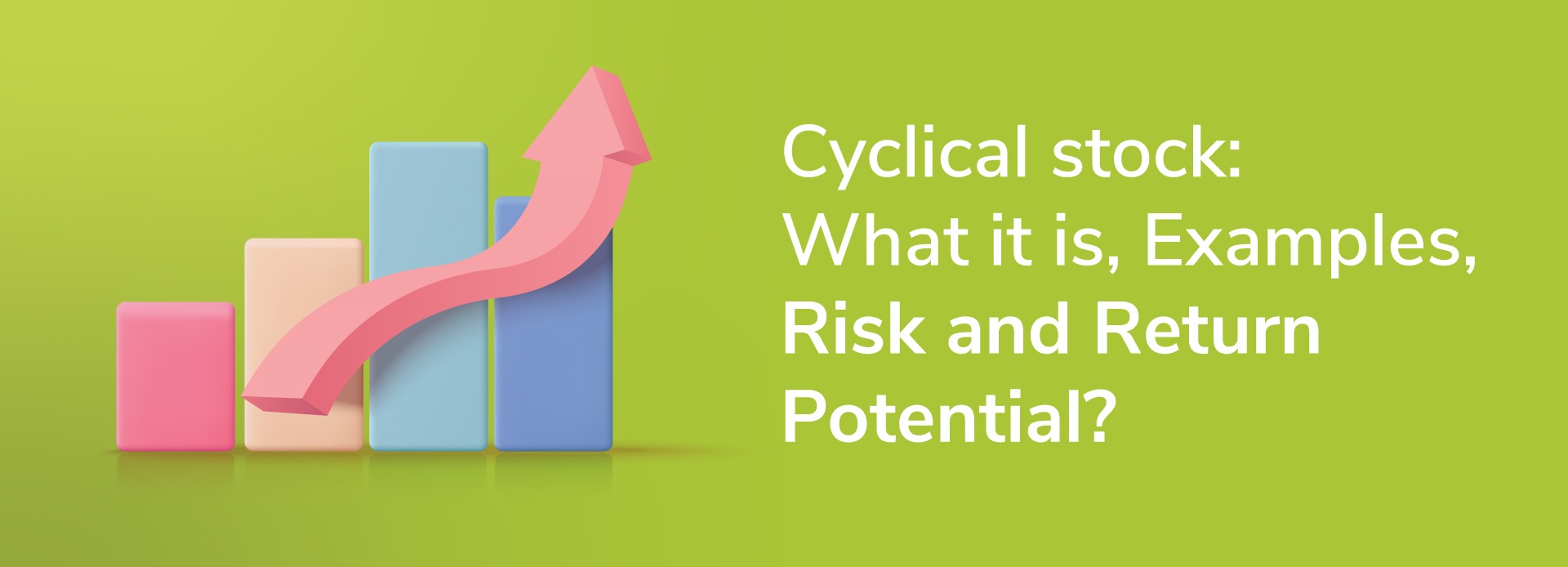
Cyclical stock: What it is, Examples, Risk and Return Potential
14 January 2024 | By INDIE
Cyclical stocks are an essential component of the financial market, intimately linked to national economic swings. These stocks are notable for their cyclical nature, which typically mirrors economic boom and recession trends. They act as a financial gauge, accurately reflecting the oscillations in economic activity and consumer spending. Owing to this direct association with economic performance, cyclical stocks are an important focus for investors and financial analysts seeking insights into market patterns and economic health. Their sensitivity to economic developments makes them an essential component of investment decision-making and strategic financial planning.
What are cyclical stocks with examples?
Cyclical stocks are strongly related to macroeconomic movements. These stocks tend to skyrocket during periods of economic expansion as consumer confidence and expenditure rise. In a downturn, their value frequently decreases as consumer spending tightens. Housing, industrial manufacturing, retail, automotive, and travel and leisure are all examples of cyclical industries.
Consider the real estate business. When the economy is doing well, individuals are more likely to invest in real estate, which drives up demand and property values. Similarly, during prosperous times, consumer spending increases, supporting enterprises in this industry. The automotive industry also rides this wave, with increased sales during economic highs. Travel and leisure is another sector that flourishes when disposable incomes are high.
The mechanics of cyclical stocks
These stocks shine during periods of economic prosperity but tend to falter in recessions. This tendency may be seen in consumer activity; for example, as previously mentioned, the purchasing power in automotive sector increases when consumers have greater discretionary money. During economic downturns, however, such indulgences are frequently postponed, affecting the sales and profitability of enterprises in these areas.
As cyclical companies are volatile, their earnings can fluctuate drastically, in contrast to non-cyclical or defensive stocks, which are less subject to economic swings. This volatility highlights the inherent risk in cyclical stock broking while also presenting the opportunity for significant rewards during periods of economic boom.
The advantages and disadvantages of investing in cyclical shares
Advantages -
Growth potential
As the economy grows, so does the demand for cyclical sectors' products and services, improving their development potential.
Value opportunities
Economic downturns might devalue these shares, presenting attractive buying opportunities for keen investors.
Dividend earnings
Many firms in cyclical sectors issue dividends, which may be a reliable source of revenue regardless of the economy.
Diversification
As cyclical stocks react distinctly to economic changes than non-cyclical stocks, they offer a balance, reducing the overall volatility and potential risk of the investment portfolio.
Protection against inflation
Certain cyclical industries, such as commodities, tend to grow in tandem with inflation, acting as a buffer against it.
However, there are limitations -
Increased risk
The high volatility of cyclical stocks adds to the danger of investing in them.
Time constraints
Accurately forecasting market cycles is difficult and can result in lost opportunities or losses.
Risks particular to the company
These stocks are vulnerable to risks such as technical advancements or variations in customer tastes, which can have an impact on their performance.
What is the possible return for cyclical stocks?
Timing and economic understanding determine the potential return for cyclical enterprises. Investing at the start of an economic boom might result in massive profits for investors. However, this requires a detailed understanding of market cycles as well as the ability to weather periods of volatility.
Final thoughts
Cyclical stocks offer a glimpse into the country's bigger economic trends, with the potential for high profits during periods of economic boom. However, their sensitivity to macroeconomic changes and inherent volatility needs a well-thought-out investing strategy stressing on the importance of diversification and a long-term approach for investors seeking to profit from these market dynamics.




